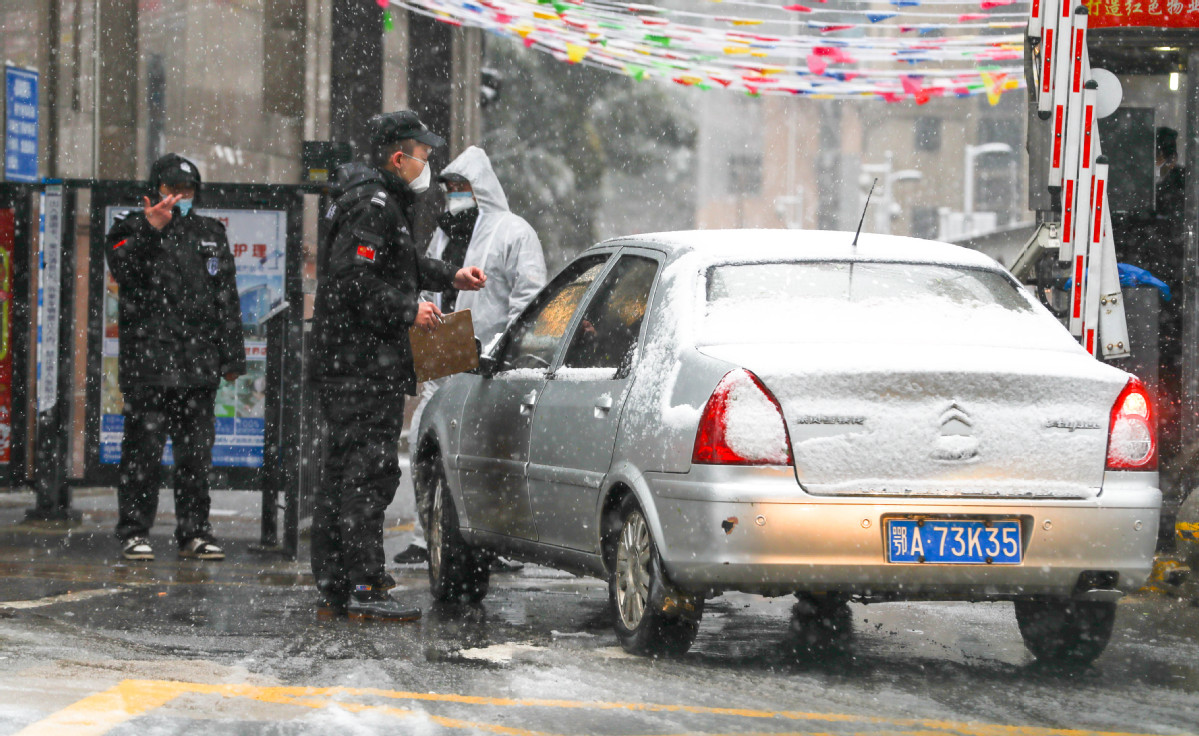Community guards ensure residents' safety


Daily work
In addition to checking people's temperatures and entry permits, the guards have to examine all car trunks to ensure no one is hidden inside, Li said.
He said the checks started after Feb 21, when an inmate who had been released from a women's prison in Wuhan, Hubei province, entered Beijing illegally.
The woman had become infected in Wuhan, one of the places hardest-hit by the coronavirus outbreak, after coming into contact with people who had the virus, so the situation could have turned serious if she hadn't been detained.
Li hails from Ulaanqab, Inner Mongolia autonomous region. He joined Tianhongbaodi, the property management company, in September 2015 and started work in Fengyayuan community, which has more than 2,000 residents.
He comes into contact with at least 600 people every day, with the peak time being 6:30 pm to 9:30 pm.
Recently, the number has risen as epidemic restrictions have been eased and residents have started taking walks after dinner, he said.
"Honestly, I was afraid to be in contact with so many people when the epidemic started. I had no idea who they had interacted with and where they'd been before entering the community, but that feeling has abated after more than two and a half months," he said.
He recalled how he tested a man whose temperature was higher than 37.3 C, a level that could indicate a fever, which made both of them quite nervous. Li asked the man to remain calm and rest for a while before he took his temperature again. The second check showed that the man was fine.
If someone's temperature exceeds 37.3 C three times in a row, the guards direct them to the fever clinic of a designated hospital to be checked by medical professionals.
If the person isn't infected, a doctor can issue a certificate to explain the cause of the fever. The only way someone with a persistently high temperature (unrelated to the virus) can enter the community is by showing such a certificate.
Li's shift ends at 3 am, so he sleeps until late in the morning. His new day starts about 1:30 pm, when he and his colleagues undertake community patrols to check potential safety hazards from fire, electricity and water sources.
"Those regular tasks can't be ignored during the epidemic prevention and control period," Li said.
He had planned to take a few days off to visit his parents in Ulaanqab, but his vacation was postponed due to the outbreak.
Since Spring Festival, he has called his parents several times to apologize for not visiting them.
Having expressed concerns about Li's safety, his family was relieved to learn that he is fully protected while on duty.
Eight security guards work in Li's community. The gate is usually guarded by two people at a time to ensure the checks can be conducted smoothly. Irrespective of the weather, the guards take turns to stand outside so everyone can be tested.
"In recent months, Beijing has had several snowy, rainy and windy days, and I stood in the snow for two hours before my colleague could replace me. It was so cold that I could not even turn on my phone because the battery drained so quickly," Li said.
The bad weather also affected security guard Wang Zedong and his colleagues in Guangtong community, Tongzhou district, when they were on duty at the gate in their community.
"In February, the company provided two awnings to cover us, but the wind and rain broke them. Instead, we had to stand outside without shelter until the local government gave us a 12-square-meter tent as cover," Wang said.
























